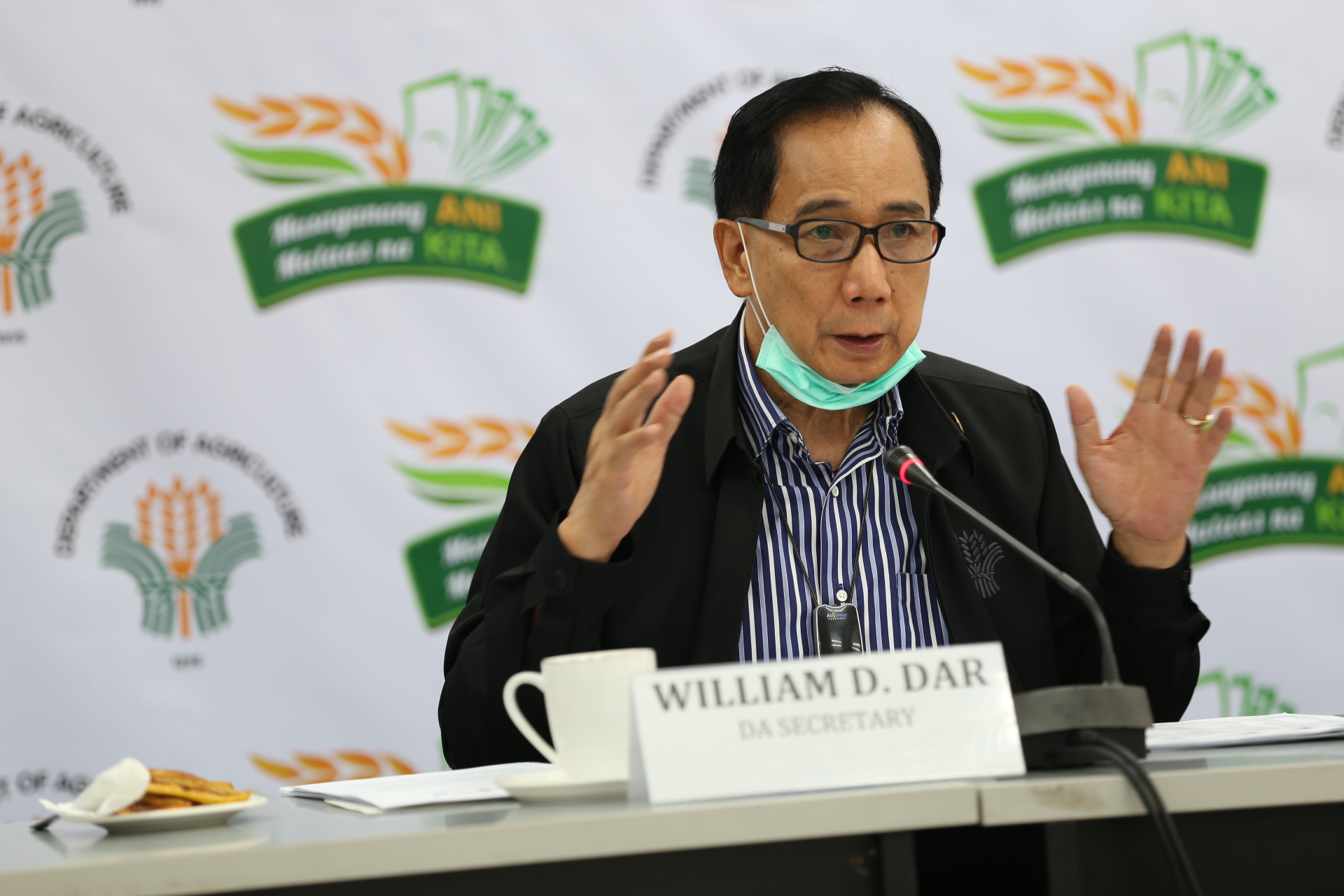
To ensure the health and safety of farmers, fishers and other ‘frontliners’ of the country’s food value chain during this Covid-19 crisis, the Department of Agriculture (DA) has developed set of guidelines that was recently approved by the Inter-Agency Task Force for the Management on Emerging Infectious Diseases (IATF).
Agriculture Secretary William Dar said the guidelines cover food safety practices in the production, handling, transportation, retail, and household preparation of farm and fishery commodities, during the community quarantine resulting from the Covid-19 pandemic.
“While the COVID-19 is a respiratory illness and the primary transmission route is through person-to-person contact and not via food nor food packaging, it is imperative to observe food safety protocols to protect agri-fishery frontliners,” Secretary Dar said.
The guidelines include good hygiene practices, cleaning and sanitation, storage, distribution and transport, and personnel hygiene and fitness to reduce possible Covid-19 transmission among employees, and maintain healthy business operations and work environment.
In particular, the DA recommends the implementation of biosecurity measures that include: thorough identification and recording attendance; conduct of temperature checks prior to entry; and strict observance of physical distancing, proper handwashing, disinfection, and respiratory hygiene.
The other recommended practices entail the:
- Provision of refresher training or any applicable briefing about food hygiene principles to eliminate or reduce the risk of food contamination through surfaces and food packaging materials;
- Maintenance of healthy business operations, establishment of monitoring and reporting protocol that includes: isolation measures; contact tracing; quarantine period; reporting to LGU: and return-to-work policy;
- Limited conduct of physical meetings, and explore other means of communications;
- Identification of workplace coordinator for COVID-19 concerns;
- At the farm, adherence to applicable protocols like Good Agricultural Practices (GAP), Good Animal Husbandry Practices (GAHP) and Good Aquaculture Practices (GAqP);
- For livestock, poultry and aquaculture farms, strict implementation of biosecurity measures;
- Wearing of applicable Personal Protective Equipment (PPE) and observance of appropriate physical distancing, handwashing, disinfection, and respiratory hygiene;
- Regular disinfection of food delivery vehicles; and
- For consumers, thorough washing of fruits and vegetables with potable water before cooking, and avoiding consumption of raw or undercooked animal products. They should also properly clean and sanitize surfaces, utensils and cooking equipment.
“Keeping every player across the food supply chain—from producers, handlers to consumers–healthy and safe is also critical to our food security efforts,” Secretary Dar said.
“Hence, we should continuously protect their welfare, while we ensure the availability of safe, hygienic and nutritious food for all,” Secretary Dar concluded. ### (Macbien Garcia, DA StratComms)













